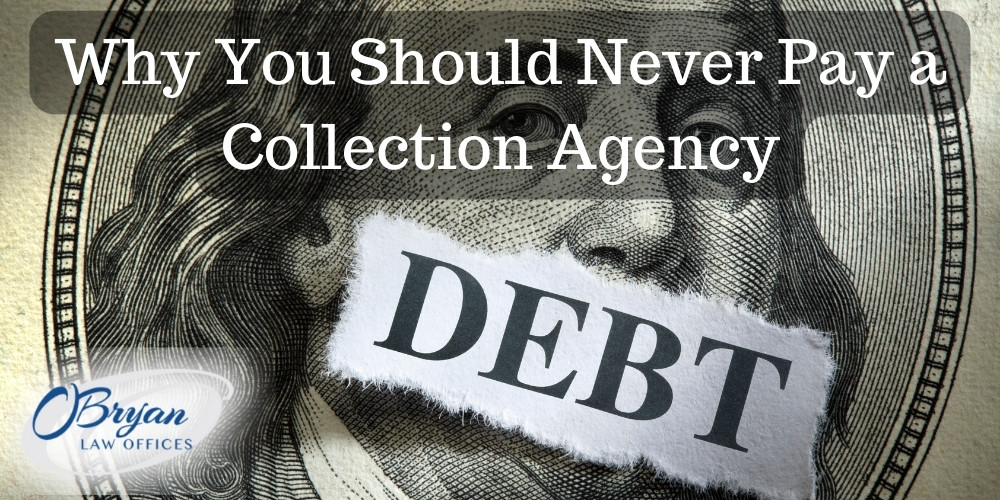You may be tempted to pay a debt collection agency so they’ll stop harassing you. Unfortunately, this can ultimately harm your credit report. Actually, there are many different reasons why you should never pay a collection agency. Your credit report shows each loan you have taken out in the past seven years, but it also covers your repayment history. If you miss payments, they will be updated on your credit report and can negatively impact your credit score. Even if you fully pay a collection agency, this would be considered a credit transaction. Therefore, it will remain on your credit report for seven years. However, there are some debts that have different statute of limitations such as mortgage debt, written contract, and judgments.
If you are struggling with debt and want to stop debt collection calls, contact the O’Bryan Law Offices at 502-339-0222 today! With the help from our experienced team, you can get back on track and out of a stressful financial situation.
Debt Collectors and Your Credit Report
The Consumer Financial Protection Bureau’s debt collection rule requires debt collectors to take certain steps before they can report a debt to a credit reporting agency. Once they have taken those steps, then they can report your debt to a credit reporting agency, as long as they follow other laws about credit reporting.
Before a debt collection agency can report your debt to a credit reporting company, the debt collector must do at least one of the following.
- Talk to you in person about the debt.
- Talk to you over the phone about the debt.
- Mail you a letter about the debt and wait around 10-14 days for a notice that the letter wasn’t delivered.
- Send you an electronic communication about the debt and wait a reasonable amount of time for a notice that the message wasn’t delivered.
If a debt collector sends you a debt validation letter about a debt, it means they have done what they needed to before reporting your account to the credit bureaus.
What Happens If You Don’t Pay a Debt Collector?
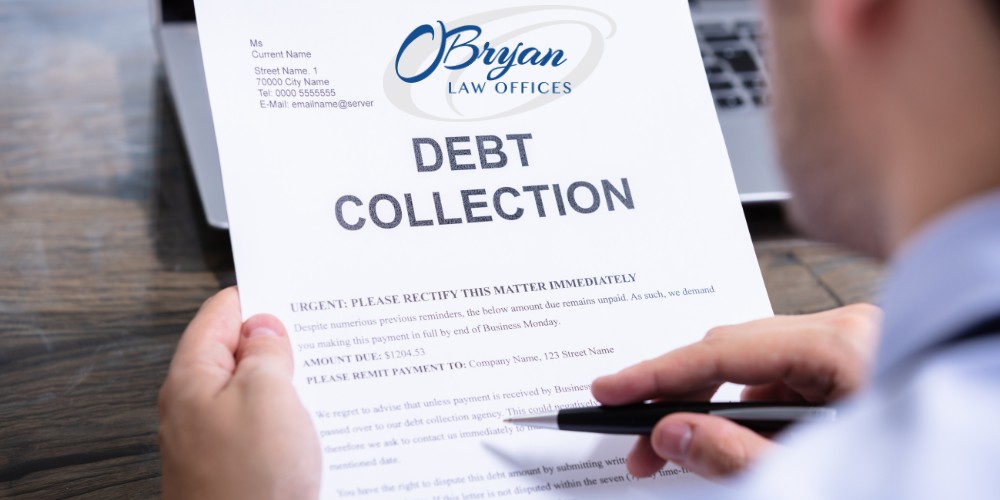
It may be tempting to simply ignore debt collectors but that is generally a poor long-term solution. Several potential consequences of not paying a collection agency include further negative impacts to your credit score, continuing interest charges and even lawsuits. Even if you can’t pay the debt in full, it’s often best to work with the collection agency to establish a payment plan.
The stress of having a debt sent to collections can be tremendous, especially with the worries that come from a decreased credit score and a slew of phone calls from debt collectors. You’ve possibly considered waiting out the collection agency and hoping that the problem goes away on its own.
Unfortunately, collection agencies are unlikely to give up on your debt, especially if you owe a substantial amount of money. You can also face continued negative effects from your debt if you try to ignore the debt collector. Consequences of not paying your debt can include the following.
Interest Charges
Even after the debt goes to collections, interest charges can continue to accrue. Any fees or interest rates outlined in your original contract can be charged by the collection agency as well.
The collection agency cannot raise your interest rate or add new fees, but it may choose to continue generating interest or late fee charges if they were part of the original agreement. Ignoring the debt collector doesn’t just fail to make your debt go away, the amount you owe may continue to increase.
Credit Effects
Having an account sent to collections will lead to a negative item on your credit report. The mark is likely to stay on your credit report for up to seven years even if you pay off your debt with the collection agency. It’s also possible that paying off your collection account may not increase your credit score.
However, there are several reasons that paying off your collection account could help your credit situation.
- The account will be shown as “paid in full” or “settled”. When future creditors look at your report, a collection account that was paid in full sends a more positive signal than an unpaid debt.
- Updated FICO® models may regard paid collection accounts differently. Changes to how FICO® credit scores are calculated may mean that collection accounts paid in full won’t hurt your score.
- Sticking to a payment plan could help establish good credit habits. As you work to pay off your debts, you’ll be establishing positive credit behaviors that will benefit you as you improve your credit history.
There may not be an immediate increase in your credit score after paying off a collection account, but it’s a great first step toward creating a more positive credit history for yourself.
Collector Communications
Collection agencies will continue to try to reach out to you unless you pay your debt, especially if you owe a significant amount of money. Collectors are allowed to contact you by phone, mail, fax, or email from the hours of 8a.m. to 9p.m. They are also allowed to contact your friends and family members to try to locate you.
It’s also important to know that collection agencies can continue to reach out to you even after your debt falls off your credit report as long as it is still within the statute of limitations. The statute of limitations on debt in Kentucky are as follows:
- Oral Contract- 5 years
- Written Contract- 10 years
- Mortgage- 15 years
- Open Contract- 5 years
- Credit Card- 5 years
- Judgment- 15 years
Since the longest statute of limitations can be upwards of 10 years, some collectors could be calling you even after the seven years the collection account is on your credit report. You do have the right to request in writing that debt collectors stop contacting you. If they don’t stop contacting you, you can file a complaint with the Consumer Financial Protection Bureau.
However, just because you request for the collection agency to stop communication with you, does not mean that the debt goes away. If you continue to ignore the debt, the collection agency may file a lawsuit against you.
Lawsuits
If a collection agency is intent on getting paid for your debt, it may decide to initiate a lawsuit against you. After the collection agency files a lawsuit with the state, you’ll receive a copy as well as a summons to appear in court.
Consulting with an attorney immediately is ideal, as failing to appear in court will mean that you lose by default. In that case the judge could award the collection agency the ability to do any of the following:
- Place a lien on your property, which can go on your public record
- Garnish your wages, which means that your employer may give part of your paycheck to the collection agency before you receive it
- Freeze some or all of the funds in your bank account
If you do receive a court summons, work with a qualified attorney to help build a case, which will hopefully lead to a settlement with the collection agency. Although, the best approach is to try and avoid lawsuits in the first place, which means making a plan to deal with the debt collectors rather than ignoring them.
What Should You Do With Collections?
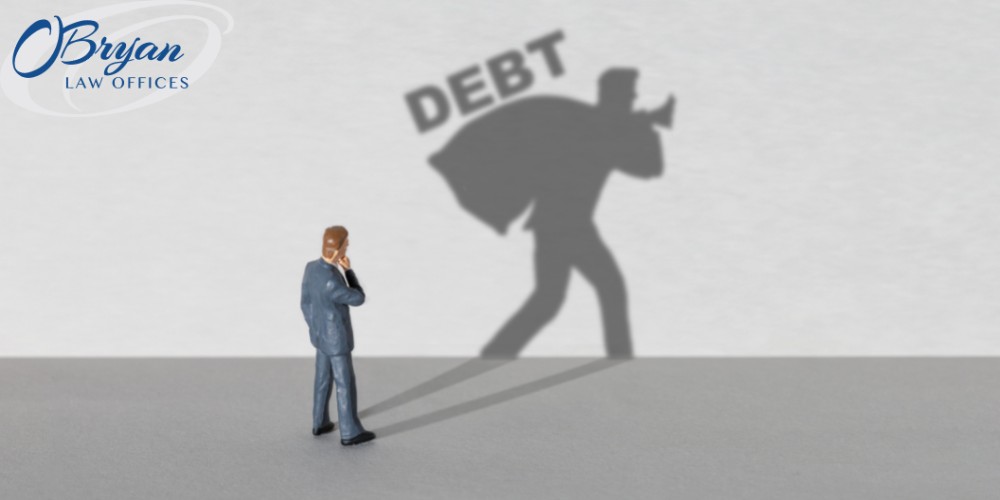
You should consider the following factors before you decide whether or not to pay a collection agency. It may be good not to pay a collection agency in the following circumstances:
- You don’t have any income or assets, and you don’t plan to change that.
- You don’t owe that debt.
- Your plan is to settle the debt for less than what you originally owed.
- The statute of limitation on debt has expired, meaning the collection agency can no longer pursue legal action against you.
- The collection agency cannot prove that they own your debt.
However, it may be wise to pay a collection agency in the following situations:
- You do owe the debt, and the collection agency can prove they own the debt.
- You want to resolve the debt quickly and you have the funds to do so.
Alternatives to Paying a Debt Collection Agency
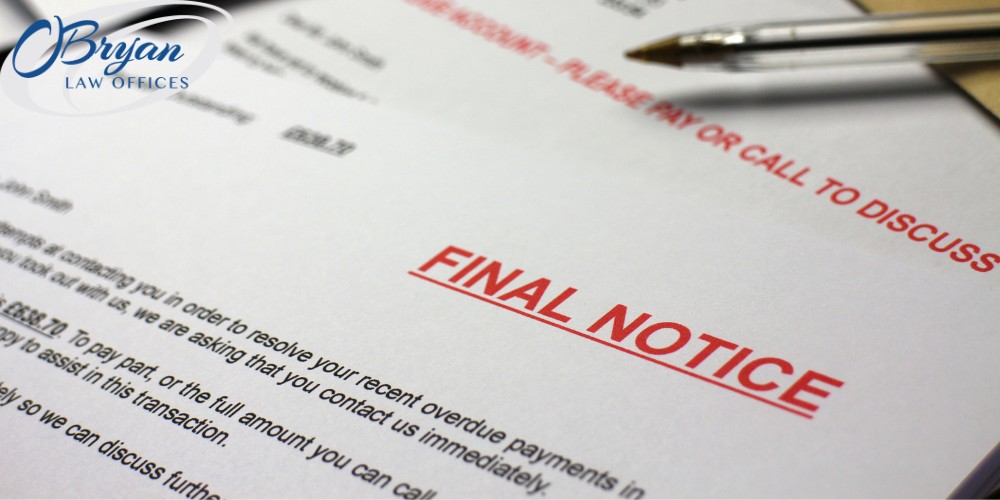
Settlement Offer
If you have a single older debt and want to stop the collection calls, you may consider a debt settlement negotiation with the collection agency. You can offer to pay the collection agency a certain percentage of the debt and ask that the unpaid debt be written off. Depending on the amount you can afford and how old the debt is, start with 20 cents on the dollar. See how little they are willing to accept and go from there.
One thing you should know about your settlement payment is that it will update the last activity date, meaning that the debt will remain for another seven years on your credit report. To avoid the negative impact, ask the collection agency to purge the debt from your credit report as soon as possible. You can ask them to do this as part of the settlement agreement.
Keep in mind that, when you’re drowning in credit card debt or other obligations, bankruptcy is the only option that will offer you true legal protections against creditors and debt collection agencies. Once you file for bankruptcy, the automatic stay goes into effect. When this happens, if a debt collector contacts you, you can simply have them communicate with your attorney instead.
Debt Management Plan
A debt management plan is basically a debt repayment service offered through a credit counsellor service. It is a plan that aims to fully repay your debts over a period 5 year period. In a debt management plan, the agency combines your unsecured debts together so that you only need to make one monthly payment. The agency then distributes your payment to each of your creditors, with the largest creditors getting a bigger share of the payment.
Debt management plans can be good for people who can fully repay all their debt, but cannot qualify for a debt consolidation loan. They would also benefit from a fixed payment schedule. There are advantages and disadvantages to a debt management plan, which include the following.
Advantages
- Stops collection calls.
- A single monthly payment.
- Reduced and sometimes zero interest charges.
- It’s a voluntary procedure- you decide to start the process.
Disadvantages
- You must repay all of your debts.
- A debt management plan is not legally binding on creditors. Bankruptcy, however, is legally binding.
- It cannot deal with every type of debt.
- This action will still appear on your credit report and be visible to future lenders.
Keep in mind that, as with debt settlements, debt management plans do not offer the same legal protections as bankruptcy. The automatic stay in bankruptcy protects consumers from wage garnishment, calls from debt collectors, further collection fees, and other negatives. Filing for bankruptcy is the only way you can be protected from creditors and debt collection agencies. If you are considering debt consolidation in Kentucky, we strongly recommend speaking with an attorney before making any decisions about your finances.
Experienced Louisville Bankruptcy Attorneys
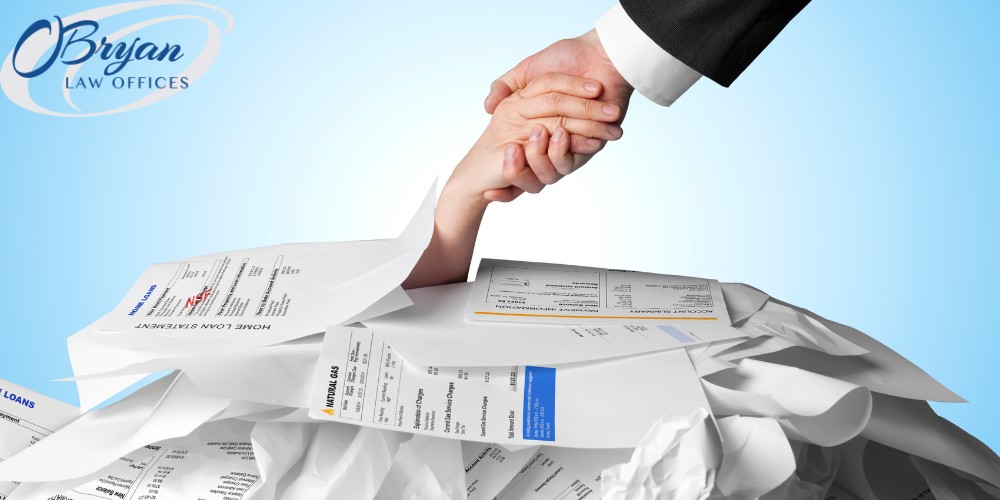
If you need help with your credit and financial plans, call our experienced Kentucky bankruptcy attorneys at O’Bryan Law Offices. We have offices in Louisville, Frankfort, and New Albany that can help with any questions you may have about your debt and what options are available to you. Our attorneys have helped both Kentucky and Indiana residents with managing their debt. Call us today at 502-339-0222 to schedule your free case consultation.


